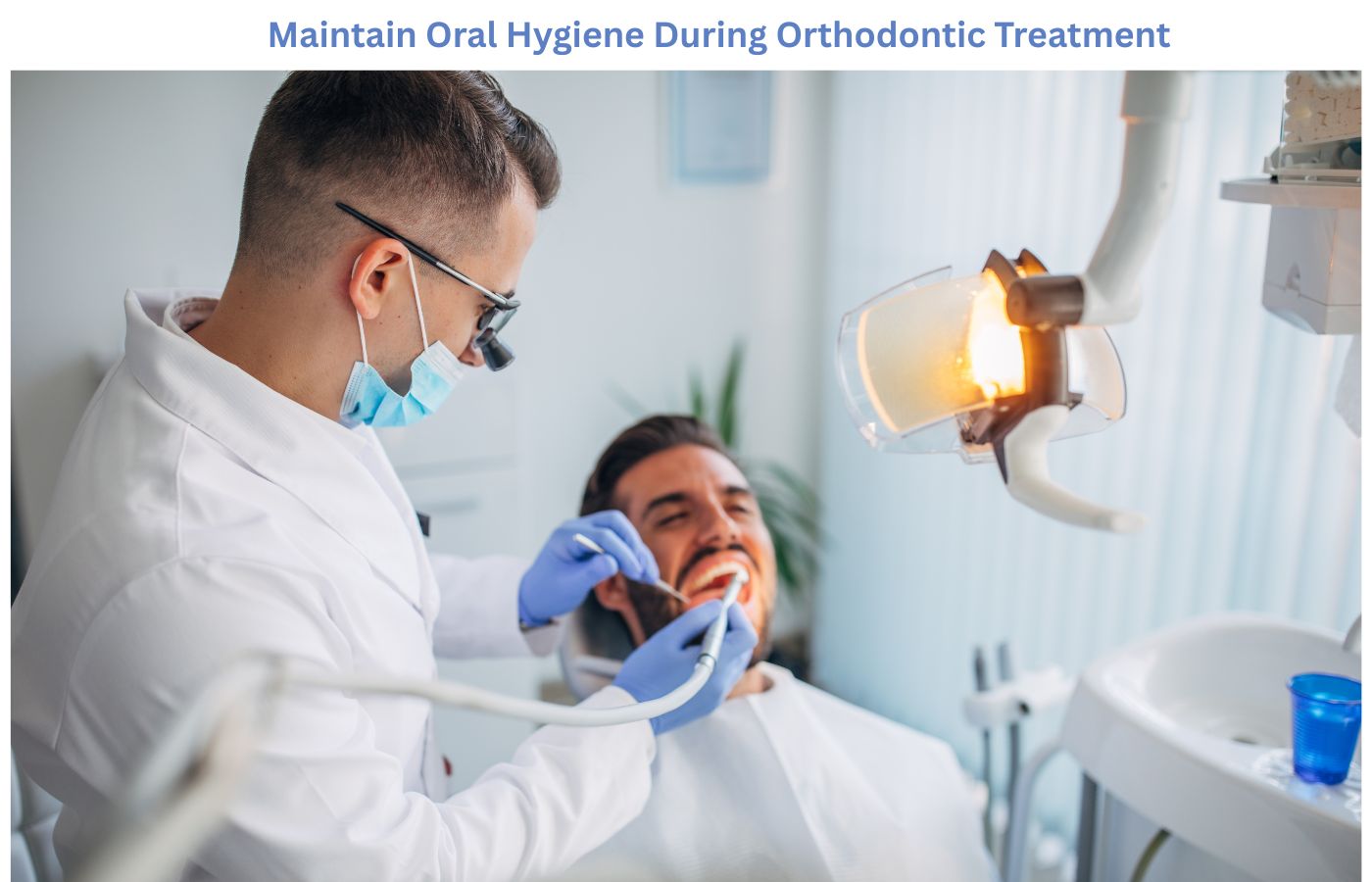Maintaining good oral hygiene during orthodontic treatment is crucial for preventing cavities, gum disease, and ensuring successful results. Regular brushing, flossing, and using mouthwash are essential. Consider using an orthodontic toothbrush or floss threaders for better cleaning around braces and wires. Regular dental check-ups will help keep your smile healthy.
Orthodontic treatment can significantly improve your smile, correct bite issues, and enhance overall dental health. However, one of the key challenges during the course of treatment is maintaining good oral hygiene. Braces, retainers, and aligners can create nooks and crannies where food particles and plaque can build up, increasing the risk of cavities, gum disease, and other dental problems. Proper dental hygiene is essential to ensure that your teeth and gums stay healthy throughout the treatment process.
Why Good Oral Hygiene is Important During Orthodontic Treatment
When you undergo orthodontic treatment, whether with traditional metal braces or clear aligners like Invisalign, your teeth are subject to increased plaque buildup. The brackets, wires, and aligners can trap food and plaque, making it harder to clean your teeth properly. Poor hygiene can lead to:
Cavities around the brackets and under the wires
Gum disease due to the accumulation of plaque
Staining of teeth, especially with traditional braces
Bad breath from trapped food and bacteria
1. Brushing Teeth Properly with Braces
One of the most crucial aspects of braces care is brushing teeth. Regular brushing removes food particles, plaque, and bacteria, preventing the buildup that can lead to cavities and gum disease. But when wearing braces, brushing requires extra attention to ensure that the areas around the brackets and wires are properly cleaned.
2. Flossing with Braces
Flossing is essential for maintaining good dental hygiene during orthodontic treatment. Regular flossing helps remove plaque and food particles from between your teeth that brushing alone can’t reach. Flossing braces can be tricky because the wire and brackets make it difficult to slide floss between your teeth.
How to floss with braces:
Use floss threaders: These devices can help you maneuver dental floss under your braces and between your teeth.
Try orthodontic floss: There are flosses designed specifically for people with braces. They often have a thicker end to help get under the archwire.
Floss at least once a day: Ideally, floss in the evening after your last meal to remove any food particles before going to bed.
Flossing is essential for preventing gum disease and tooth decay during orthodontic treatment. While it may take extra time and effort, it’s one of the most effective ways to keep your teeth clean.
3. Mouthwash Use
Using mouthwash can be a great addition to your braces care routine. Mouthwash helps wash away food particles and bacteria that can contribute to plaque buildup. It also helps freshen your breath, especially if you're unable to brush immediately after meals.
Benefits of mouthwash with braces:
Kills bacteria: Mouthwash can help reduce bacterial growth in your mouth, especially around your brackets and gums.
Reduces plaque: Regular use of mouthwash can help prevent plaque from accumulating on your teeth.
Soothes irritated gums: If your gums are sore or inflamed due to your braces, mouthwash with ingredients like fluoride can provide relief and promote healing.
4. Invisalign Cleaning
If you’re using Invisalign aligners instead of traditional braces, you’ll need to follow different cleaning instructions. Since Invisalign aligners are removable, they’re easier to clean, but they still require care to avoid bacteria buildup that can lead to bad breath or dental problems.
Tips for Invisalign cleaning:
Clean aligners daily: Rinse your aligners with lukewarm water every time you remove them. You can also use an Invisalign cleaning solution to remove buildup.
Brush aligners gently: Use a soft toothbrush to gently brush your aligners with water or a non-abrasive toothpaste. Avoid using regular toothpaste as it can scratch the aligners.
Avoid hot water: Hot water can warp the aligners, so always use lukewarm water to clean them.
Never eat with aligners: Always remove your aligners before eating to prevent food from getting stuck in them and causing odor.
5. Regular Teeth Cleaning Appointments
Even with diligent brushing and flossing, it’s important to have regular professional teeth cleaning. Your orthodontist or dentist will ensure that your braces or aligners are not causing any damage to your teeth and gums. Professional cleanings also help remove plaque and tartar buildup that can’t be removed through daily brushing and flossing.
6. Dietary Tips for Better Oral Hygiene with Braces
What you eat plays a significant role in maintaining good oral hygiene during orthodontic treatment. Foods that are sticky, sugary, or hard can cause damage to your braces and promote plaque buildup, leading to cavities and other issues.
Foods to avoid:
Sticky foods: Chewing gum, caramel, or taffy can get stuck to your braces and cause damage.
Hard foods: Crunchy foods like hard candy, popcorn kernels, or ice can break your braces or cause discomfort.
Sugary foods and drinks: Soda, candies, and sweetened beverages contribute to plaque buildup and cavities.
Opt for softer foods like fruits, vegetables, and lean proteins that won’t harm your braces. Drink plenty of water to rinse away food particles, and limit sugary snacks and beverages.
7. Orthodontic Care for Retainers
Once your braces are removed, your orthodontist may recommend a retainer to maintain your teeth’s position. Retainers also require regular cleaning to prevent plaque buildup.
Tips for retainer care:
Clean retainers daily: Use a toothbrush and water or an orthodontic cleaning solution to keep your retainer clean.
Store properly: Always store your retainer in a case to protect it from damage.
Avoid hot water: Just like with Invisalign, never use hot water to clean your retainer.
Conclusion
Maintaining oral hygiene during orthodontic treatment is crucial for ensuring that your teeth and gums remain healthy. Whether you're wearing traditional braces, Invisalign, or using a retainer, proper braces care, regular teeth cleaning, flossing braces , and using mouthwash can prevent complications and help you achieve the beautiful, healthy smile you’re working towards.
